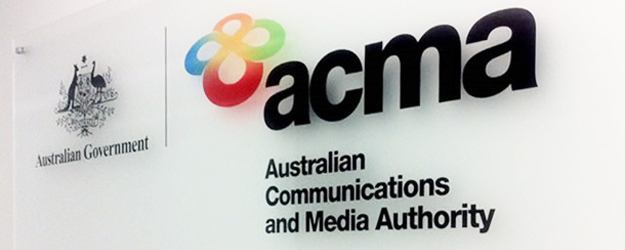This website uses cookies so that we can provide you with the best user experience possible. Cookie information is stored in your browser and performs functions such as recognising you when you return to our website and helping our team to understand which sections of the website you find most interesting and useful.
Business News Digital Legal Top Stories
Australian three-strikes put on hold as government denies plans to cut copyright term
By Chris Cooke | Published on Thursday 26 May 2016

Moves to introduce a three-strikes system to combat online piracy in Australia are on hold, with the country’s music industry seemingly happy to focus on web-blocking for the time being. Although plans for three-strikes were pretty well developed in Australia, with internet service providers under pressure from government to participate in the scheme, agreements could not be reached on who would pay for the anti-piracy programme.
A number of countries have considered both three-strikes and web-blocking as anti-piracy tactics. The former involves persuading or forcing ISPs to send increasingly stern warning letters to suspected file-sharers, with the threat of legal action or other sanctions if users continue to access content from unlicensed sources. The latter involves courts ordering ISPs to block access to websites deemed to be rampant copyright infringers.
In the UK, Parliament adopted a form of three-strikes, but then that never happened and the entertainment industry found it could instead secure web-block injunctions under existing copyright law. Meanwhile in Australia, both were being actively considered by government for a time, but in the end web-blocking got underway sooner.
And now reps from both the internet and entertainment industries have told the Australian government that they want to put the three-strikes initiative – aka the Copyright Notification Scheme – on hold. They said in a letter to the Australian Communications And Media Authority: “While the text of the [CNS] code was agreed between the parties, negotiations were still under way to finalise an associated commercial agreement to address a range of issues, including cost sharing, underpinning the operation of the [scheme]”.
It went on: “It has not proved possible to reach agreement on how to apportion all of the costs for the overall operation of the CNS. This lack of agreement is not due to any shortage of good-faith effort by the parties. Efforts to resolve the impasse included the joint commissioning of a comprehensive study by an independent consultant to identify the range of real-world costs that would be incurred”.
According to ZDNet, the boss of the ISP-repping Comms Alliance had already confirmed at a recent conference that both the internet and entertainment industries were now of the opinion that web-blocking should be prioritised over three-strikes.
John Stanton said: “What we’re looking at doing is making a joint approach to the minister with rights holders to say, ‘well, given the focus is on website blocking at the moment, let’s put that [three-strikes] draft code into abeyance, and not have the ACMA seek to further examine it for possible registration, and we’ll come back in twelve months and see whether it makes sense to try and reinvigorate those commercial discussions”.
Elsewhere in Aussie copyright news, the country’s Communications Minister Mitch Fifield has denied rumours that his government is considering a proposal to reduce the copyright term on literary, musical and artistic works from the current life of the creator plus 70 years.
The term reduction is one of a number of proposals in a recent report by the government’s Productivity Commission, many of which would be controversial within the content industries, including an expansion of Australia’s fair dealing copyright exceptions and an extension of safe harbour protection for internet platforms, in contrast to the reduction of safe harbours the music industry is lobbying for in the US and Europe.
But Fifield has insisted that a cut in the copyright term is not on his government’s agenda, saying: “Recently, it has been wrongly claimed that the government is planning to reduce the life of copyright to fifteen to 25 years after creation, rather than 70 years after the death of the author as it is currently. This is not something the government has considered, proposed, or intends to do. The false claim is based on a finding in a recent draft Productivity Commission Report into Intellectual Property Arrangements”.





